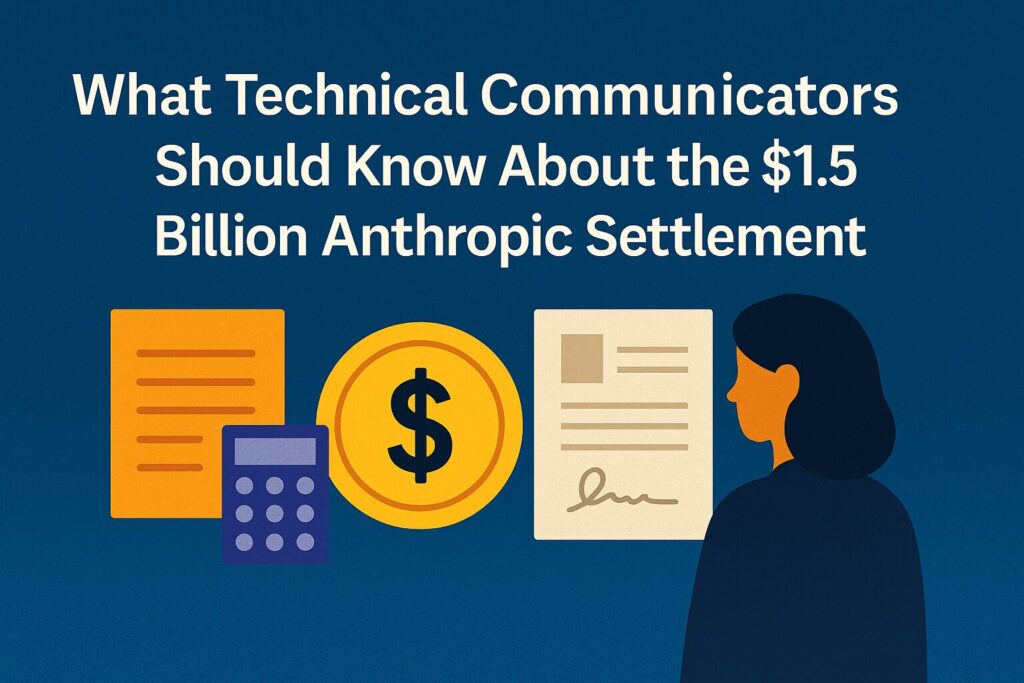
The $1.5 Billion Anthropic Settlement marks a turning point in how courts, companies, and creators are grappling with the use of copyrighted works in AI training. For technical communicators, the case is less about numbers and more about precedent. It shows that the way AI systems are trained is no longer just a technical detail—it is now a legal, ethical, and professional concern.
The Authors’ Perspective
The Authors Guild, which helped lead the lawsuit, argues that this settlement is about fairness and survival. Their position is simple: copyrighted works were used to train Anthropic’s AI models without permission, undermining the ability of authors to control or profit from their creations. From their perspective, the $1.5 Billion Anthropic Settlement is a recognition that authors deserve compensation when their intellectual property becomes the raw material for generative AI. They also stress that this is not the end but the beginning of a broader push for ongoing licensing frameworks and stronger protections.
The Judge’s Perspective
From the bench, the settlement was framed differently. The judge emphasized that the scale of AI training created unprecedented risks of copyright infringement, and that voluntary licensing had not kept pace with industry growth. The $1.5 Billion Anthropic Settlement was described as both a remedy and a warning: a remedy for past misuse, and a warning to AI companies that copyright cannot be ignored in pursuit of innovation. Importantly, the court noted that future lawsuits are inevitable if clearer rules are not established.
How AI Training Works
To understand why this matters, it helps to know how AI is trained. Large language models rely on scraping massive amounts of text from across the internet, much of which is copyrighted. These models don’t “copy and paste” text, but they do ingest it, analyze it, and use it to generate new outputs. The problem is that this training data often includes books, articles, and documentation created by working professionals—without consent or compensation. This is why the $1.5 Billion Anthropic Settlement is being hailed as a watershed moment. It highlights that the invisible processes of AI training are now subject to legal and ethical scrutiny.
Why This Will Be a Continuing Problem
Even with this settlement, the issue is far from resolved. AI companies need enormous datasets to remain competitive, and those datasets almost inevitably include copyrighted material. Unless comprehensive licensing systems or new legislation emerges, lawsuits will continue. For technical communicators, this means that the content they create could be part of this cycle: valuable for training, vulnerable to misuse, and increasingly protected by evolving legal frameworks.
What This Means for Technical Communication
The $1.5 Billion Anthropic Settlement should signal to technical communicators that their work is part of a much larger ecosystem. Documentation, manuals, training materials, and even blogs may be swept into AI datasets. Communicators need to be aware of how their content circulates, how it may be used without consent, and what protections might exist in the future. At the same time, technical communication as a field can contribute to the conversation by clarifying how AI works, by advocating for ethical data use, and by ensuring that users understand both the capabilities and the costs of generative AI.
